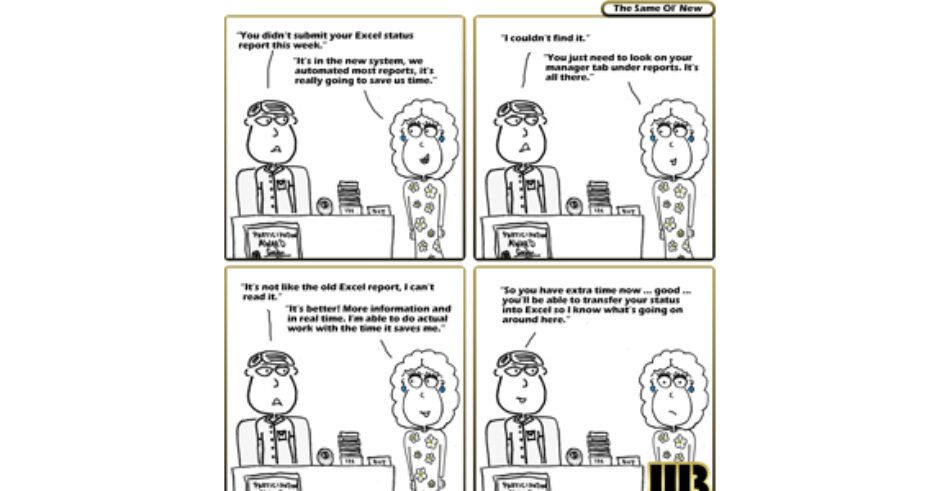A friend once told me that he respects all religions, as long as people “really commit to whatever that religion is by attending some house of worship weekly.” He could not see that he was validating religion against the Judeo-Christian framework. Many religions don’t have a house of worship, and many don’t have a requirement of weekly attendance.
When I first got my kindle in 2007, I tried to print out all the pages. It was reference material, not a novel. I called Amazon to ask how to do this. The help desk person told me that it was not intended to be printed. I had to get my head fully around the concept of ebooks, and get used to looking things up on the kindle instead of paper.
As humans we do this, we look to put new things into familiar frames. And when we can’t find one we get really anxious.
As I help transition clients into “new ways of working”, I am continually challenged by people’s need to see new things through old lenses. I try to help them by shifting their frame before they can shift their actions, which itself doesn’t fit the traditional model of change. “Tell us what to do and stop bothering us with all this theory!” they cry. They want “new ways” in “old frames”.
The big paradigm shift that challenges many organizations is the need to give up “order and control.” They say things like “When I give up order and control, how can I report on that to see if it’s working and know when I need to intervene?” Ok, ok, they don’t say it exactly like that, but you get the gist.
It calls to mind a story about Stalin visiting London and noticing that there were no bread lines. He asked to speak with the person in charge of bread so he could find out how they were doing it. He couldn’t wrap his head around the harmony being created through the lack of order and control. He was asking the wrong question.
A client challenged me to help them ask the right questions in these situations. What would I have said to Stalin? Perhaps “Mr. Stalin, instead of asking how to better control bread supply, try asking how control mechanisms inherently cause supply issues.” And in turn, I could ask clients “Instead of asking for reporting so you feel in control and certain about the productivity, ask how your need for control is impacting productivity.” Or maybe “What would need to be true, to alleviate your need for detailed reports?”
Brain twist: Can you find a new paradigm at work, being used in old ways? What questions can you ask to shift alignment to the new ways?
The Business Transformation Network has posted this article in partnership with WorkBytes.


